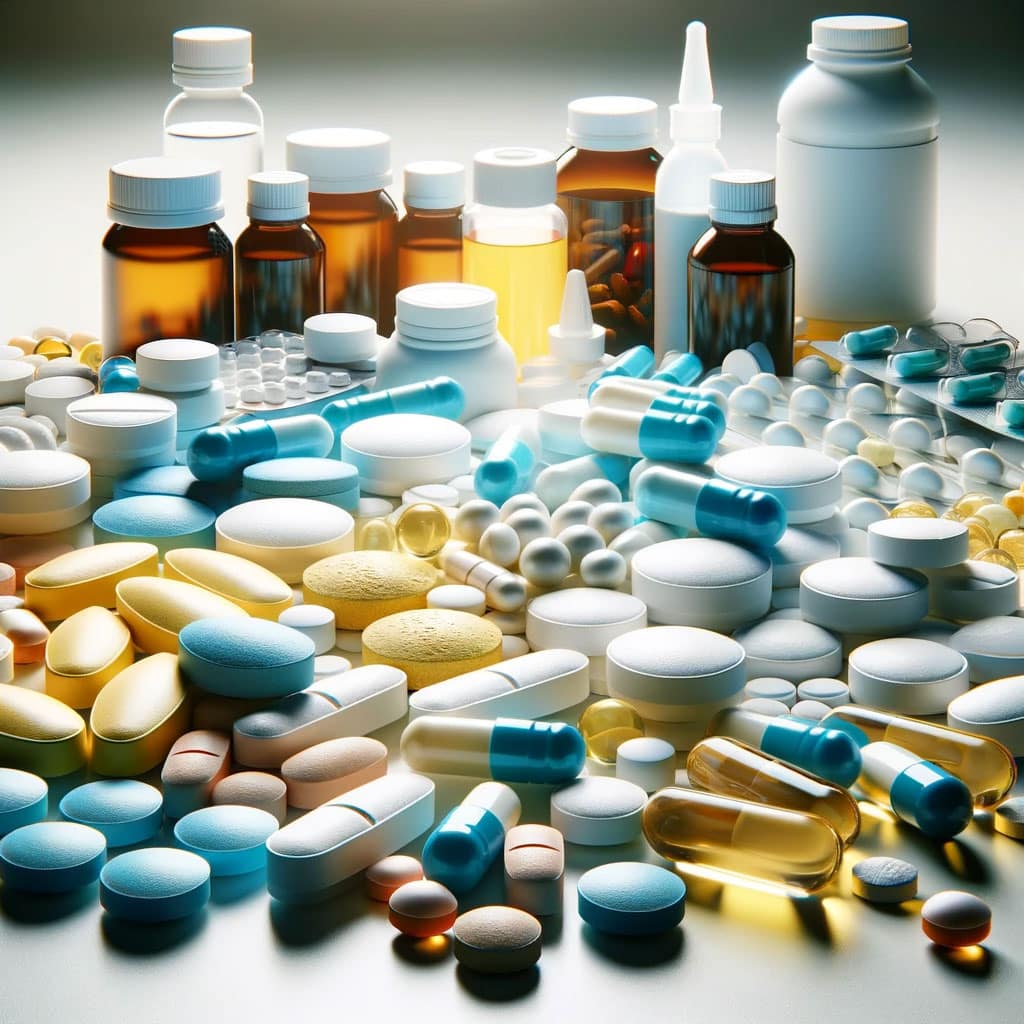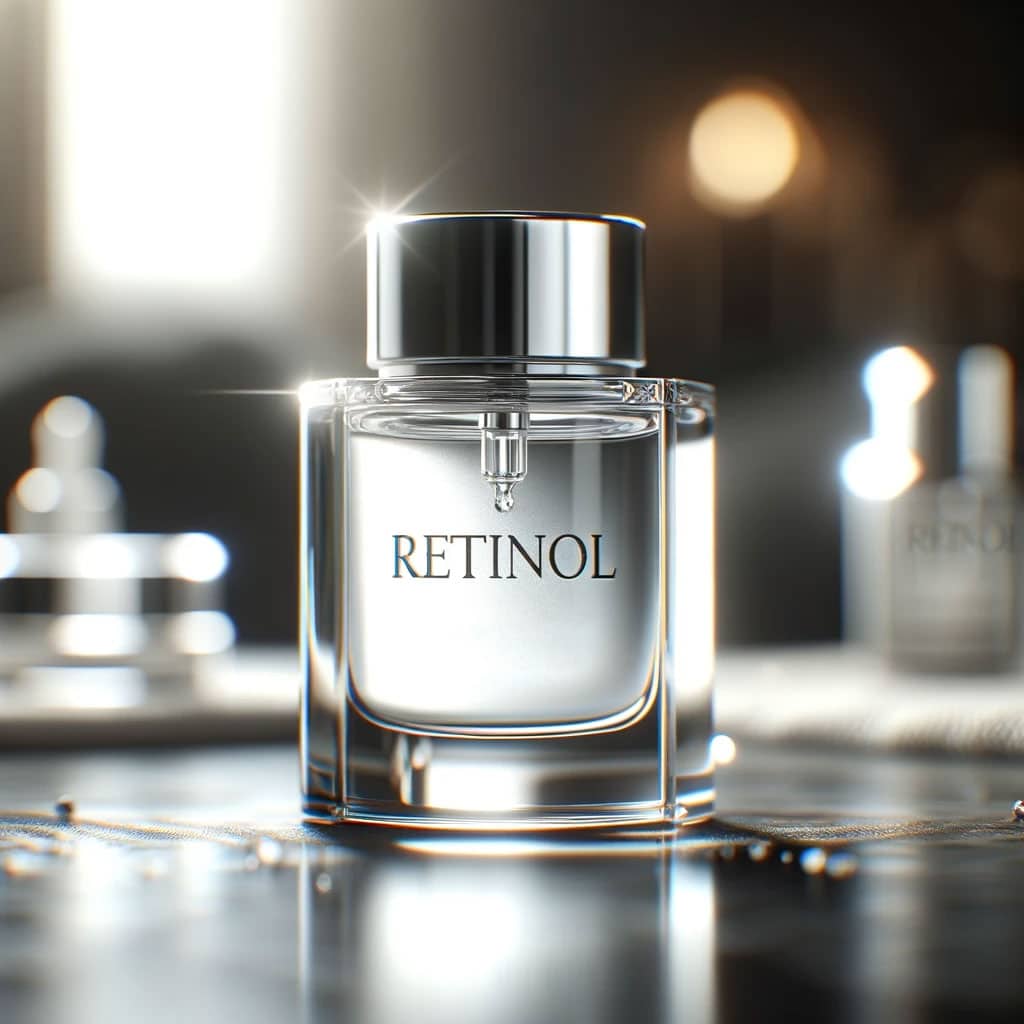Retinol is a derivative of vitamin A that has become a noteworthy player in the realm of skincare, particularly concerning acne treatment. Its popularity is not unfounded; retinol functions by promoting cell turnover and preventing the clogging of pores, two crucial steps in the fight against acne.
Accelerating the process of shedding dead skin cells and stimulating the production of new cells helps to keep the skin’s surface clear and pores less prone to blockages that can lead to breakouts.
Acne sufferers often look for effective solutions to handle their skin concerns, and retinol’s versatility makes it a compelling option. It not only assists in managing existing acne but also has benefits in preventing new pimples from forming.
Moreover, because of its ability to reduce the appearance of fine lines and enhance skin texture, retinol has earned praise not just for its acne-fighting abilities but also for its anti-aging properties.
Dermatologists realize the potential retinol holds in skin care regimens, but they also caution that its use should be tailored to an individual’s skin type and tolerance. While retinol-containing products are widely available over-the-counter, stronger retinoids require a prescription.
With proper use, retinol can be a powerful ally for clearer, healthier-looking skin, and its continued research and application in dermatology underscore its significant role in contemporary skin care practices.
Understanding Acne
Acne is a common skin condition that affects individuals of various ages, often characterized by the presence of pimples, blackheads, and whiteheads on the skin. It can lead to inflammation and different types of lesions depending on several factors.

Causes of Acne
Acne occurs when pores, the tiny openings on the surface of the skin, become clogged. This blockage can result from an accumulation of dead skin cells, excess oil production, and sometimes bacteria. Hormonal changes often play a significant role, and this can be particularly evident during puberty, menstruation, or periods of stress, which can exacerbate the body’s oil production.
- Genetics
- Hormonal fluctuations
- Medications
- Diet
- Stress
Types of Acne
There are mainly two types of acne: non-inflammatory and inflammatory.
- Non-inflammatory Acne:
- Blackheads (open clogged pores)
- Whiteheads (closed clogged pores)
These are typically less severe and are caused by pores clogged with oil and dead skin.
- Inflammatory Acne:
- Papules
- Pustules
- Nodules
- Cysts
This kind is usually more visible and can result from the body’s response to bacterial growth within clogged pores, leading to redness, swelling, and pain.
Fundamentals of Retinol
Retinol is a versatile derivative of Vitamin A, primarily recognized for its significant role in improving skin health and renewing the skin’s appearance. It strikes a balance between efficacy and mildness, making it an accessible treatment for a range of skin concerns.

What Is Retinol?
Retinol is a type of retinoid, which is a class of compounds derived from Vitamin A. It is less potent than prescription-strength retinoids, making retinol a popular over-the-counter option for those seeking to incorporate Vitamin A’s benefits into their skincare routine.
The compound works by promoting skin cell turnover, which assists in the rejuvenation of the skin’s upper layers and supports collagen production, vital for maintaining skin structure and elasticity.
Benefits of Retinol on Skin
The benefits of retinol on the skin are diverse. They include:
- Enhanced Collagen Production: Retinol can stimulate the production of new collagen, effectively addressing signs of aging such as wrinkles and fine lines.
- Improved Skin Texture: By accelerating cell turnover, retinol helps to exfoliate dead skin cells, resulting in smoother and more even-toned skin.
- Acne Management: It aids in unclogging pores, which can reduce the appearance and frequency of acne breakouts.
Regular use of retinol can lead to visibly clearer, more youthful-looking skin, as it leverages anti-aging effects alongside other skin benefits.
It’s crucial to note that retinol’s efficacy and side effects can vary, making it essential to choose a product suited to one’s individual skin type and concerns.
Retinol in Acne Treatment
Retinol is a dermatologically acknowledged ingredient for treating acne, known for its ability to promote cell turnover and improve skin texture.
Effectiveness of Retinol for Acne
Retinol has been validated as an effective treatment for acne, owing to its properties that accelerate the cell turnover process. This increased rate of skin renewal helps to unclog pores, which is pivotal in preventing acne breakouts.
Clinical studies support retinol’s efficacy, noting significant improvements in patients diligently using retinol for acne management.
How Retinol Works on Acne
When applied, retinol penetrates the skin, encouraging the shedding of dead skin cells and the growth of new ones. This action not only helps to clear and unclog pores but also enhances skin texture.
Regular use of retinol products can result in a more refined complexion and a reduction in the occurrence of acne breakouts. It is, however, essential to introduce retinol gradually to one’s skincare routine to monitor skin tolerance.
Types of Retinoids for Acne
Retinoids are potent derivatives of vitamin A that play a significant role in treating acne. They vary in strength and formulation, each offering distinct benefits for acne management.
Retinoic Acid
Retinoic acid, also known as tretinoin, is a prescription-strength retinoid effective for acne treatment. It aids in the renewal of skin cells, reducing the appearance of acne scars and helping prevent new acne from forming.
Adapalene
Adapalene is a topical retinoid available both over the counter (in lower strengths) and by prescription. Marketed under the brand name Differin, it is especially suitable for those with sensitive skin due to its milder composition, while still being effective against acne.
Tazarotene
Tazarotene ranks as one of the more potent retinoids and is typically used for more severe acne cases. Because of its strength, it is also used to address acne scars and is available only with a doctor’s prescription.
Isotretinoin
Isotretinoin, known for its brand name Accutane, is an oral retinoid. It’s usually reserved for severe or cystic acne that doesn’t respond to other treatments. Isotretinoin has transformative results for many, but it requires close monitoring due to its possible side effects.

Using Retinol Products
When addressing acne concerns, selecting a suitable retinol product and applying it correctly are crucial steps. Retinol is available in various formulations, including creams, gels, and serums, and the concentration levels can vary significantly.
Choosing the Right Retinol Product
Retinol strength matters when selecting a product. Over-the-counter options typically have lower concentrations, suitable for those who are new to retinol or have sensitive skin.
Users can find retinol in forms such as cream, gel, or serum.
- Over-the-counter retinol cream: Typically lighter in consistency and can be used as a moisturizer.
- Retinol gel: Has a clear, gel-like consistency, often preferred for oily skin types.
- Retinol serum: Usually more potent and designed to deliver a higher concentration of retinol.
For someone seeking stronger acne treatment, prescription-strength retinol or a retinoid may be recommended. It is essential to consult with a healthcare provider to discuss options and find the product that best fits into a personal skincare routine and addresses specific skin concerns.
Application and Dosage
Proper application and dosage are key to maximizing the benefits of retinol while minimizing potential irritation.
- Start slowly: Begin with a lower concentration and gradually increase as your skin builds tolerance.
- Frequency: Apply retinol products 2-3 times per week and observe skin’s reaction.
- Quantity: Use a pea-sized amount for the entire face after cleansing and before applying moisturizer.
Incorporating a moisturizer can mitigate the dryness or irritation that retinol might cause.
Individuals should always follow with a broad-spectrum sunscreen during the day, as retinol can increase the skin’s sensitivity to the sun.
Consistency and proper usage will yield the best results over time.
Managing Side Effects
While retinol is effective for treating acne, it can cause side effects such as irritation and dryness. Users should be aware of these potential issues and know how to manage them to continue treatment effectively.
Common Side Effects
Retinol is known to cause various side effects, particularly during the initial phase of treatment. These can include:
- Dryness: A lack of moisture in the skin leading to a rough texture.
- Redness: Visible inflammation and a reddish tone on the skin’s surface.
- Peeling and Flaking: The shedding of the outer skin layer, often in response to new skin cell turnover.
- Irritation and Itching: Discomfort and an urge to scratch the affected area.
- Sensitivity: An increased reaction to external stimuli, such as skin care products or environmental factors.
- Eczema Flares: In individuals with eczema, retinol can exacerbate the condition, causing intense dryness and itchiness.
For those with sensitive skin, the reactions may be more pronounced, requiring careful management.
Minimizing Side Effects
To reduce the impact of side effects caused by retinol, individuals can adopt the following strategies:
- Gradual Introduction: Slowly incorporate retinol into a skincare routine, starting with a lower concentration and infrequent application.
- Moisturize: Use a hydrating moisturizer to combat dryness and flaking.
- Sun Protection: Daily application of sunscreen is crucial, as retinol can increase sun sensitivity and the risk of sun damage.
- Be Mindful of Other Products: Limit the use of exfoliants or other potential irritants while using retinol.
By cautiously managing these side effects and adjusting the use of retinol, individuals can improve their skin’s tolerance and minimize discomfort, ensuring the continuation and effectiveness of acne treatment.
Retinol and Skin Care Regimen
Retinol is a versatile skincare agent known for its effectiveness against acne, signs of aging, and uneven skin tone. It works by accelerating cell turnover, reducing the appearance of fine lines, and promoting a more even skin texture.

Integrating Retinol with Other Products
When introducing retinol into a skincare routine, it’s crucial to understand how it interacts with other products.
Retinol can be used in conjunction with hyaluronic acid for hydration, niacinamide to manage acne and soothe inflammation, and vitamin E for its antioxidative properties.
However, care should be taken when pairing with vitamin C or exfoliating acids (like AHA/BHA). These combinations may cause irritation, so it is advisable to use them on alternate nights or in separate AM/PM routines.
Retinol in Anti-Aging Regimens
Within anti-aging regimens, retinol stands out for its capacity to diminish wrinkles and fine lines by boosting elastin and collagen production.
Ingredients like bakuchiol, a natural alternative to retinol, can be employed as a gentler option for sensitive skin.
Regular use of retinol can also mitigate sun damage and hyperpigmentation, leading to a reduction in dark spots and an overall improvement in skin tone.
To combat melasma and discoloration, retinol’s skin texture-enhancing properties can be highly beneficial when consistently incorporated into nighttime routines.
Protecting the skin from further sun damage with a broad-spectrum sunscreen is non-negotiable to prevent counteracting the positive effects of retinol on melanin-related concerns.
Safety and Precautions
When considering retinol for acne, it’s crucial to understand the safety and precautions necessary to avoid adverse effects. This includes awareness during pregnancy, potential interactions with other medications, and the proper use of the product.
Retinol Use During Pregnancy
Pregnant individuals should exercise caution with retinol products. Retinoids, the class of compounds to which retinol belongs, have been linked to birth defects when taken orally, as in the case of isotretinoin, known by the brand name Accutane.
While topical use is generally considered less risky, dermatologists often advise against the use of retinol during pregnancy, recommending alternatives like benzoyl peroxide or salicylic acid that are considered safer for expecting mothers.

Interactions with Other Medications
Retinol can react with other skincare ingredients and medications. For instance, it can increase skin sensitivity when used with other exfoliants, potentially leading to irritation.
It’s vital for those considering retinol use to consult a dermatologist, especially if they’re already using products like First Aid Beauty FAB Skin Lab Retinol Serum or are on acne treatments such as benzoyl peroxide or salicylic acid to mitigate any negative interactions.
Avoiding Retinol Misuse
It’s important not to misuse retinol. Overuse can result in redness, peeling, and dryness.
To avoid such reactions, dermatologists suggest starting with a lower concentration of retinol and gradually increasing it. Moreover, retinol should be incorporated slowly into skincare routines, initially using it a few times per week and carefully observing the skin’s response.
Sunscreen is imperative as retinol can increase photosensitivity, leading to more rapid sun damage.
Conclusion
Retinol is widely recognized as an effective treatment for acne, supporting skin renewal and addressing common concerns such as scarring and inflammation.
Summary of Retinol for Acne

Retinol, a derivative of vitamin A, functions by promoting the turnover of skin cells and regulating oil production, which in turn can reduce the severity and occurrence of acne.
Studies and expert opinions suggest that retinol not only helps in treating mild acne but may also improve the skin’s overall texture and tone, subsequently diminishing acne scars and marks. It’s known to exert anti-inflammatory effects, assisting in the reduction of acne-related inflammation.
Interaction between retinol and the skin’s outer layers can lead to an initial purge, where acne flares up before improvement is observed, a phenomenon that should not deter users as it’s typically a sign the treatment is active.
Expectations and Results
Individuals using retinol for acne can expect a period of adjustment where mild stinging or peeling may occur due to the product’s potency, especially for those with sensitive skin types.
Over time, with consistent and correct use following package or dermatologist directions, they should see a notable improvement in their acne.
The efficacy of retinol, including reduction in inflammation and healing of scarring, is often observed within several weeks to months.
It is critical for users to maintain realistic expectations about the timeline and to be aware that results may vary based on individual skin types and the severity of acne.

